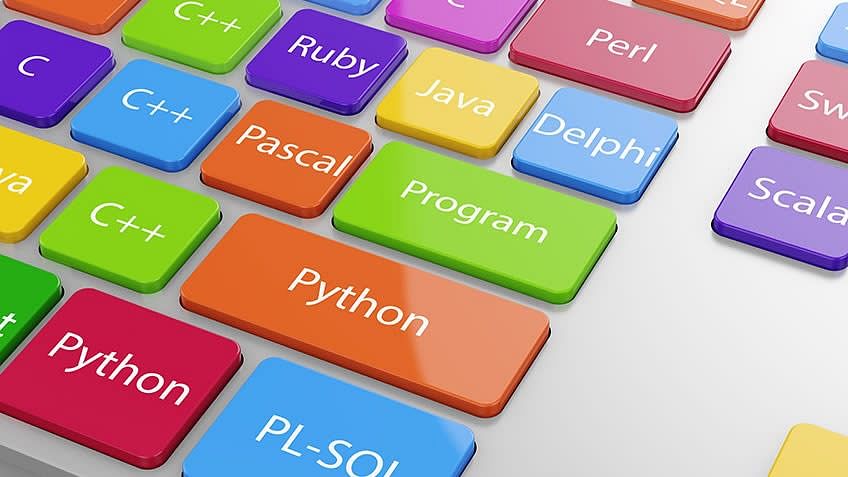Meta Title: 14 Essential Programming Languages for Mobile App Development
Meta Description: Here are the top programming languages for 2024 that every web and mobile app development company in Florida incorporates in their projects.
Did you know that, as of 2024, over 700 programming languages are available? However, a web and mobile app development company in Florida only picks a few for their work.
This article will guide you through 14 of these crucial languages shaping mobile app development’s future.
These languages have been chosen based on their performance, scalability, and popularity among developers.
Whether you’re an experienced developer or a newcomer to the field providing web and app development services, mastering these languages can give you a competitive edge in the dynamic world of mobile app development.
Types of Mobile Apps
- Native Apps Development: Tailored specifically for individual operating systems, native apps utilize languages like Swift (iOS) and Java or Kotlin (Android). They offer superior performance and can access full device functionality, making them ideal for complex applications.
- Hybrid Apps Development: These apps are built using languages like JavaScript and React Native and are capable of running on iOS and Android platforms. Hybrid apps balance cost-effectiveness and functionality, suitable for a wide range of simpler applications.
- Progressive Web Apps (PWA): PWAs blend web and mobile app experiences, offering app-like functionalities within a web browser. Developers familiar with Ruby, Python, and JavaScript find PWAs an efficient way to deliver user-friendly web applications with mobile app features.
Key Programming Languages for Mobile App Development
iOS Programming Languages
- Objective-C
Objective-C is an object-oriented programming language that was the foundation for iOS mobile apps. Despite its robustness, it’s considered less developer-friendly due to its complex syntax.
- Swift
Introduced in 2014, Swift has become the preferred language for iOS app development. It is easier to use and more compact than Objective-C, making it an ideal choice for modern iOS applications and preferred by the best web and app developers in Houston.
Android Programming Languages
- Java
Java, an object-oriented programming language, has been a staple in Android app development since its inception. It’s known for its portability across platforms, including mobile devices.
- Kotlin
Kotlin is a newer language that runs on the Java Virtual Machine. It’s interoperable with Java and is known for its clean and concise syntax. Google’s support for Kotlin has boosted its popularity among Android developers.
Hybrid App Development Languages
- C#
C# (C sharp), developed by Microsoft, is known for its use in game and Android app development. It’s a versatile object-oriented language used in various hybrid app development frameworks.
- Xamarin
Xamarin, a Microsoft-acquired framework, allows developers to use C# for building apps across iOS, Android, and Windows. It simplifies the development process by sharing code across platforms.
- React Native
React Native, utilising JavaScript, is also widely used in web and mobile app development services in Houston, enabling developers to create native-like apps for iOS and Android. It’s popular for its ability to provide a native user experience while allowing for code reusability across platforms.
- Appcelerator
Appcelerator uses JavaScript to create native iOS, Android, and Windows apps. It offers direct access to native functionality, although it does not support HTML5 and CSS for UI manipulation.
Languages for Progressive Web Apps (PWA)
- Ruby
Ruby is a general-purpose language favored for its simplicity and effectiveness in web application development, including PWAs.
- Python
Python is versatile in various domains, including web development and data analysis. It’s known for its object-oriented features and is a popular choice for PWAs.
- CSS and JavaScript
While CSS is used for styling, JavaScript is essential for adding functionality to PWAs. These languages are crucial for web developers transitioning to PWA development.
Choosing the Right Language for Your App
Selecting the appropriate programming language is a multifaceted decision for any Web and Mobile App Development Company in Florida. It’s not just about the language itself but also about the type of app you’re aiming to create, the platform you’re targeting, the budget you have for development, and the technical expertise of your development team.
Native development, for instance, offers high performance and an excellent user experience, but it requires more resources and time than other methods. This is because it involves writing code for each specific platform separately.
On the other hand, Hybrid and Progressive Web App (PWA) development provides flexibility and quicker deployment. They allow you to write code once and deploy it across multiple platforms.
However, they might not deliver the same level of device optimization as native apps. This is because they rely on a “one-size-fits-all” approach, which may not fully bring out the unique features of each platform.
Therefore, understanding these nuances and making an informed decision is crucial for the success of your app development project.
Frequently Asked Questions
1. What is the difference between native and hybrid app development?
Native apps are developed specifically for one platform using languages like Swift (iOS) or Java (Android). Hybrid apps are developed using a single language and can work across multiple platforms.
2. Why is Swift preferred over Objective-C for iOS development?
Swift is more modern, easier to learn, and offers a more streamlined syntax than Objective-C, making it the preferred choice for new iOS applications.
3. Can I use Python for mobile app development?
Yes, Python can be used for server-side programming in mobile apps and is particularly effective for PWAs and web application development.








